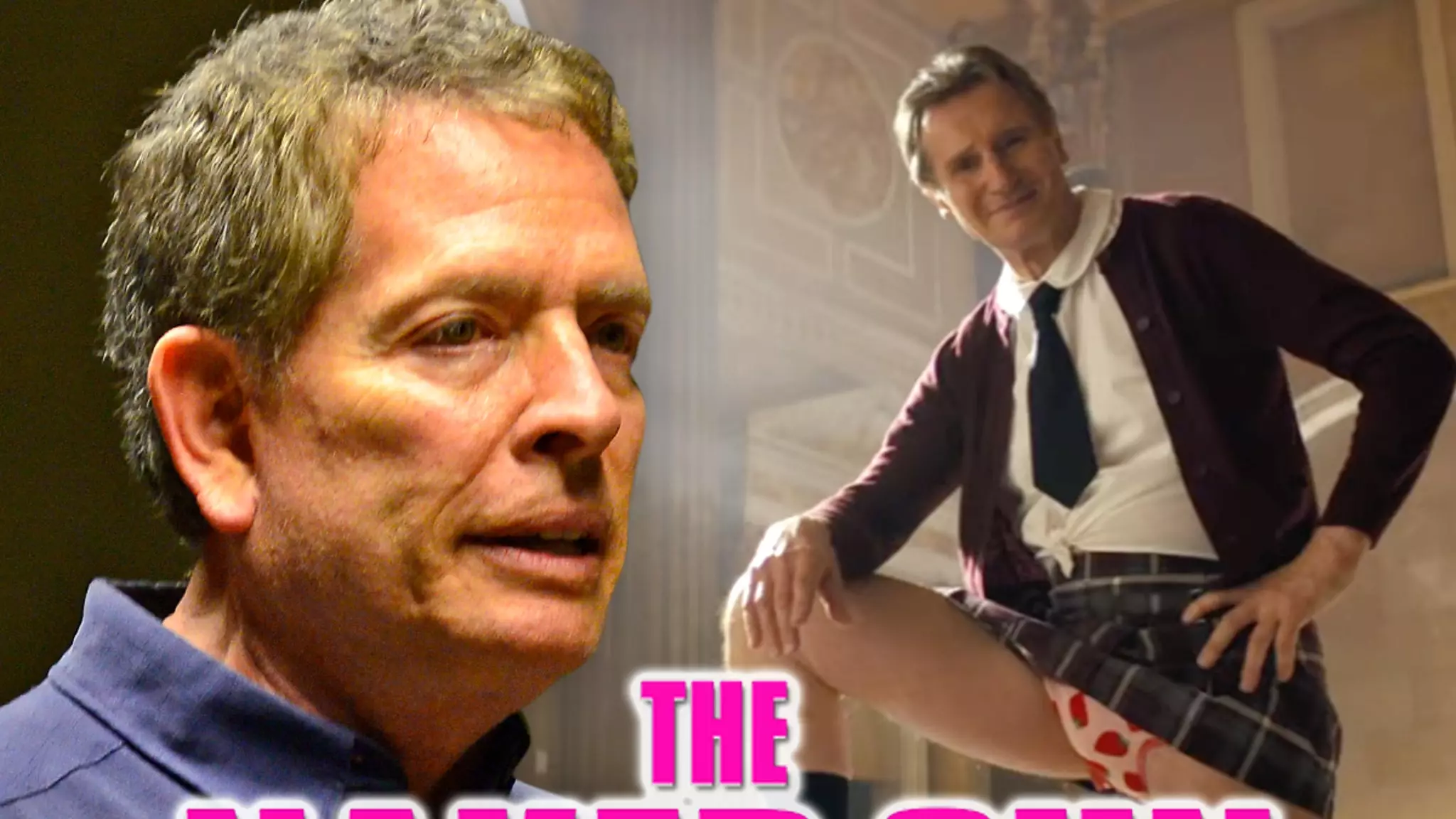Recently, the trailer for the much-anticipated remake of “The Naked Gun” hit the internet, stirring up a whirlwind of emotions among fans and creators alike. With Liam Neeson stepping into the role of Lt. Frank Drebin, this reinterpretation of the beloved ’80s classic has sparked a dialogue filled with both excitement and skepticism. Notably, David Zucker, the original director who masterminded the comedic genius behind both “Airplane!” and the first “Naked Gun” installment, expressed a severe disappointment after watching the trailer. His candid remarks about the experience reflect the deep-seated concerns many purists have when beloved films undergo a modern make-over.
Zucker’s vehement critique framed the remake as a regrettable viewing experience, akin to an unwelcome visual trauma that sticks with you—his reference to the infamous “2 Girls 1 Cup” sets a vivid illustration of his disdain. The analogy strikes a chord, as it emphasizes the delicate balance between honoring a classic and veering into the realm of the absurd. Many loyal fans are left wondering if this remake can truly capture the charm and comedic brilliance of the original narrative or if it will traverse into the territory of cringe-worthy folly, a fate feared by many reboots of cherished franchises.
The Reality of Creative Ownership
What adds another layer of complexity to the situation is the lack of communication between Zucker and the creators of the new film. Zucker revealed to a prominent news outlet that he wasn’t consulted regarding the remake, despite his and his collaborators’ previous attempts to pitch a new script to Paramount back in 2018. This oversight seems less like an innocuous decision and more like a symptom of a larger trend in Hollywood, where original voices are often cast aside in favor of fresh interpretations that may not always be grounded in respect for the source material.
This disconnection may evoke a sense of betrayal for creators like Zucker, who spent years crafting the very essence of the comedic landscape that “The Naked Gun” represents. One cannot help but question: in the pursuit of new direction, is the entertainment industry losing sight of the individuals who shaped the legacy they seek to revive? The very essence of creativity thrives on collaboration, and the omission of original voices in remakes drifts dangerously close to erasing history rather than embracing it.
The Divided Fanbase and Nostalgic Humor
What’s particularly interesting is how polarized the reception has been from those associated with the original series. While Zucker’s sentiments underscore a strong opposition, the response from O.J. Simpson’s former attorney offers a refreshing, albeit surprising, viewpoint. Malcolm LaVergne, while acknowledging the hefty baggage that Simpson carries, found humor in the noir-inspired gags of the trailer. This juxtaposition between disdain and acceptance highlights the intricacies of appreciating humor that is deeply rooted in cultural context.
LaVergne evokes the idea that laughter transcends pain. His assertion that fans will get the joke if they are privy to the original context suggests an inherent communal experience tied to comedy. However, therein lies the rub: how many fans will latch onto these nuances today, particularly younger viewers unfamiliar with the historical backdrop? This remake could attract a new audience, yet risk alienating those who hold the originals dear. The delicate dance of honoring the past while striving for relevance is a precarious balancing act that few remakes manage successfully.
Humor in Evolution: A Cautious Path Forward
As the industry grapples with reboots and remakes, the arguments put forth by creators like Zucker and commentators such as LaVergne raise an essential question: How do we evolve humor while still respecting its roots? One could argue that the world of comedy is inherently fluid; however, its transformations should not come at the cost of nostalgia or authenticity. Perhaps the challenge lies in navigating modern sensibilities while staying true to the signposts that defined the original.
With talent as formidable as Liam Neeson at the helm, there’s undeniable potential for a distinct take on an enduring legacy. It is hoped that the essence of what made “The Naked Gun” iconic—its sheer absurdity paired with incisive cultural commentary—will either persevere through this new lens or inspire a future where comedic brilliance remains, not merely imitated, but reinvigorated. The outcome of this remake could very well dictate the course of future adaptations, invigorating dialogues on creativity, tradition, and the peculiar humor that unites generations through laughter.

